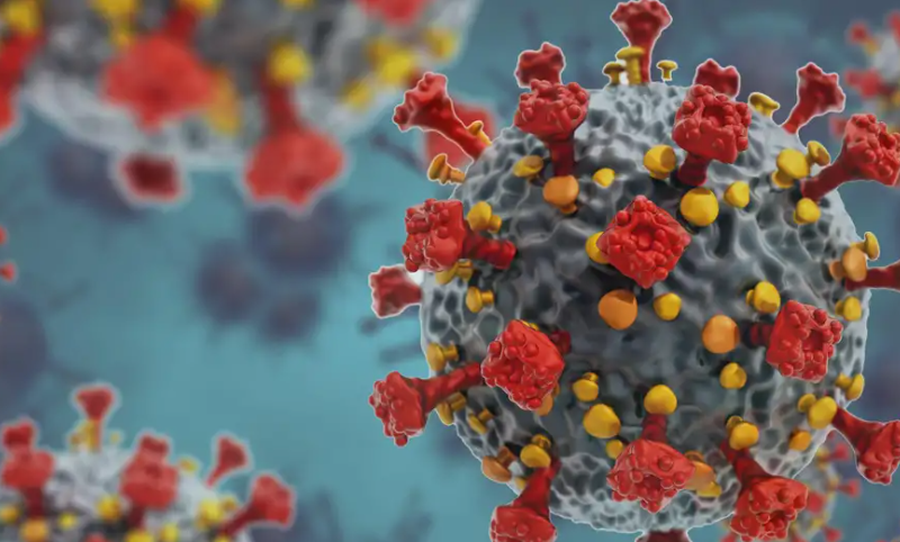
Two years after the state of emergency imposed due to the coronavirus pandemic was lifted, the Bundestag has announced that it will form an investigative committee. It is expected that lessons will be learned from this time.
Dealing with the coronavirus pandemic is an "open construction site," said Bärbel Bass, shortly before the end of her term as president of the Bundestag. The Social Democrat (SPD) politician has since been appointed labor minister in the new German government led by Christian Democrat (CDU) politician Friedrich Merz.
On page 112 of the coalition agreement between the Christian Democrats and the Social Democrats, there is a sentence that Bärbel Bass might like: "We will examine the coronavirus pandemic comprehensively within the framework of a commission of inquiry, in particular to draw lessons for future pandemic events."
The two goals of the investigative commission
During the previous government of the SPD, the Greens and the liberals (FDP), no agreement could be reached on this. The opposition Left Party submitted a proposal in October 2024 to establish a Bundestag investigative commission, in which it formulated two goals:
"First, lost trust must be regained through serious scrutiny. Second, knowledge and recommendations for action must be provided that will help us come up with a more proactive, smarter, and more effective response to this pandemic, but also in the event that such a pandemic situation occurs again."
A virologist in the German Bundestag
This second attempt to form an investigative commission is intended to make up for what was lost. It is not yet known when it might start operating, but the experts are already ready. Among them is Hendrik Streck, one of Germany's leading virologists who rose to fame during the pandemic. In the Bundestag elections in February this year, he won a direct seat in Bonn on the CDU list.
Streck is 47 years old, a member of the German parliament's Health Committee. The federal government has also appointed him as responsible for addiction and drug issues. He views the coronavirus and its consequences from different perspectives: scientific, medical and political.
He believes an investigation into the pandemic is "absolutely necessary." It was "the biggest crisis since World War II," Streck said in an interview with Deutsche Welle.
He hopes that as a member of the Bundestag he will be able to find answers to questions that, in his opinion, have not been sufficiently investigated so far. For example: how do the government's scientific advice work in a crisis like the one caused by the coronavirus pandemic?
"It is an area of tension between science, politics and the public," the virologist assesses based on his experience.
"I experienced the pandemic while working in the emergency room"
Left-wing opposition MP Stella Merendino, who is also a member of the Bundestag's Health Committee, agrees that lessons for the future cannot be learned without an investigative commission. The politician is a nurse by profession and told DW: "I experienced the pandemic working in the emergency room. I saw people die but we were no longer allowed to see their loved ones."
Merendino criticizes the fact that many people were left alone during the pandemic: with their economic worries, childcare, loneliness or overwork. "This has fueled anger and distrust that continues today," she says. However, she believes it is possible to heal these open wounds: "We don't have to convince everyone, but we have to listen to those who are open to it. And as politicians, we have to have the courage to admit mistakes."
Above all, Merendino expects more support from the state and society for people still suffering from the consequences of corona. "I know nurses who can no longer work due to the prolonged covid. Many of them are fighting for recognition, for financial security. And this in a health system that is already overloaded."
Reducing divisions in society
MP Hendrik Streck also believes that a deeper look into the emotional consequences of the pandemic is missing. German President Frank-Walter Steinmeier has at least tried to do this. During and after the pandemic, he met with those affected from all walks of life to talk to them.
Streck thinks more needs to be done, for example by forming a citizens' council chaired by President Steinmeier. "Something like that would be useful," he says.
Examples from other countries can also help in the process of dealing with the pandemic past, says Streck. "As a scientist, it's important for me to see different results." For example, he has read the reports from England very carefully. "Perhaps it was different from country to country how certain measures worked," the virologist from Bonn says cautiously.
"More data and more analysis will help us get a more accurate picture," concludes Henrik Streck. He is convinced that this would also help to alleviate divisions in society./ DW (A2 Televizion)











